 Sometimes, you can feel no choice but to speak out about wrongs you encounter. Sometimes, something happens which triggers you to do so. Today was one of those days. This is the tale of autism charitable organisations at both national and local levels.
Sometimes, you can feel no choice but to speak out about wrongs you encounter. Sometimes, something happens which triggers you to do so. Today was one of those days. This is the tale of autism charitable organisations at both national and local levels.
The seed to this post was sown, when I started questioning what autism charities actually do, initially based on my own experiences but then reaffirmed by liaising with others who had found the same, as well as reading about the experiences of others on forums. A little bit of reading of some accounts bolstered these views still further.
A few facts about the National Autistic Society (NAS):
The NAS‘ income includes Government funding and also public donations.
71% of it’s funding goes on staff costs, leaving only 29% for everything else – including actual support for autistics. This staff, includes staff for it’s schools and admin staff. NAS schools support only 500 autistic children across the UK. The UK has a population of around 150,000 autistic children. So…tokenism? Smoke and mirrors? A very conservative estimate of how many autistic adults there are in the UK, is based on 1%, 641K – but I have seen the figure quoted as 700K and research shows that for every 3 diagnosed people there are at least 2-3 undiagnosed (and it also cites the rate as 1 in 64).
I once asked some questions about their accounts on the NAS’ Facebook page, I was instructed to message them privately – as if they were scared to let the cat out of the bag and then they blocked me from commenting at all, no reason given. All I had done was quote some figures from their accounts and make associated points. (you can read their accounts here.)
The NAS runs campaigns, does surveys from which they produce reports, has lots of information about autism on it’s website and runs conferences and training courses. Of course conferences and training courses are at a charge to delegates and attendees, to at least cover their overheads in running them. They also have some regional coffee mornings etc. and people can apply to be NAS ambassadors to run things under the NAS flag.
But what physical difference do most autistics feel from such an organisation? How does it translate on the ground, in day-to-day life? The NAS has a helpline, when I once called it prior to my youngest child’s diagnosis (whilst on the waiting list to be seen), I was told “We can’t help you without a diagnosis.” and that was that. I was stunned, as well as left high and dry. On other occasions having used their email helpline, I discovered that they could not take any action to assist in any form and they sent generic information and links, all of which I had already tried the avenues for, before reaching out to them for help. And some of their replies took about 4 months to arrive.
The NAS has also failed to speak out about the issue of parents in autism families being falsely accused by professionals, with those accusations sometimes even resulting in children being taken from their families. They are fully aware of it, they even ran safeguarding workshops to see what angles professionals were dealing with autism families from. An email conversation and long telephone conversation with a relevant member of NAS staff is also how I know how very aware they are of this problem. But they have not spoken out publicly whatsoever. They took the softly-softly approach with the safeguarding workshops, I attended one. They did not challenge a horrific CAFCASS professional there, who had the most shocking ‘parents are the enemy‘ attitudes towards the family in the role-play. The most they have stretched to, is giving one such falsely accused parent speaker, Tim Gilling (who also happens to be Deputy Chief Executive and Director of Health and Social Care at The Centre for Public Scrutiny), a platform at a January 2015 safeguarding NAS conference “Getting it Wrong: The Impact on Families” https://www.youtube.com/watch?v=RDKS6NmAEWo (Most parents however will never have such a platform and no recourse or help, when they find themselves falsely accused, and most professionals will carry on regardless).
Where was the NAS when Monique Blakemore of Autism Women Matter went to the United Kingdom Human Rights Committee “Human Rights Violations Against Parents That are Autistic, Have an Autism Spectrum Condition“? Why didn’t they publicise the call for research participants for the important survey on autistic motherhood on their website?
I have previously contacted the NAS’ campaigns department over important issues that need raising by them, they are after all the UK’s main autism charity and so have the largest voice and it could be argued, the largest responsibility. They didn’t respond on any occasion. I also had cause to contact their legal department over an issue involving an authority’s breach of various laws in regards to autism, three emails and a year later, they never responded there either. Not a bean.
I additionally contacted them asking for their assistance in organising a fashion show to highlight the issues of females with autism being under-diagnosed. They were initially enthusiastic – when they thought I wanted to do it all myself and they would just put their name to it as a ‘supporter’. Why not after all, free publicity which makes them look good. But once I clarified that I wanted them to fund it and help source a venue etc. they told me their funds were all already spoken for and they couldn’t help. Really? What are ticket sales for then if not to cover costs? And surely a charity’s funding is there to highlight issues for the people it represents anyway.
The NAS cannot police the Autism Act 2009 or the Autism Strategy 2010 (and nobody else is either). They never highlight that the Government is not policing it either, at best only pointing out how local authorities are faring on implementation of provision across the UK. Don’t bite the hand that feeds you eh?
A recent post on their Facebook page was met with a string of comments of people speaking out about how neither they nor their children saw any benefit from the NAS and asking what their funding was being spent on. Some of these people send monetary contributions to the NAS and pay to be members. As I used to, but found the quarterly magazine didn’t confer any practical help in everyday life and membership didn’t benefit me in any way.
No Better the Devil You Know…

But it’s not just the NAS. I have encountered a dismally woeful and shocking provision from a local Asperger’s charity which has also shown me how these organisations fail the very people they are set up to support.
This charity, among other things, assists autistic people with benefits such as DLA by liaising directly with the DWP on their behalf (phone calls and letter writing can be difficult for autistics, especially dealing with layers of departments to get through and staff who don’t explain things clearly). I gave them authority to do this for me, by signing their requisite letter and was assigned a caseworker, who I met. Twice. Other autistics will understand what I mean when I say, that being required to attend meetings is often very stressful, meeting new people is very stressful. Communication itself, is at times stressful. It’s a condition with social communication problems, so doesn’t it go without saying? Other parents of autistic children will also understand when I say, that supporting an autistic child requires a lot of work, assessments, meetings, reports, forms, frequent school liaison, EHCPs, DLA, tribunals …ad infinitum. When you have two autistic children as I have, you can double the stress, exhaustion and time involved. When you also have autism yourself…well, you get the picture.
So when this caseworker (who had a pattern of being very tardy – and sometimes non-existent – in responding to status update request emails, involving lots of waiting and chasing) went on maternity leave without a word to me, or what was happening with my case (and apparently not handing it over to anyone either), leaving matters (it transpired) unresolved and with much time having wasted, needless to say this was difficult for me. In chasing up and finding out there was a new caseworker, he was insisting on me going to meet him at their offices, it was even more difficult. Especially as they knew I had a school-refusing child on my hands and it involved a train journey to-and-from a not well-served station and multiple other regular commitments to contend with – plus having Ehlers Danlos Syndrome, I am frequently physically exhausted. Finding out that his manager backed him up on this demand, despite that I had previously met his predecessor and they had all my personal papers and details and therefore knew exactly who I was. I reminded them that I was entitled to reasonable adjustments and that it was very difficult for me to comply with their request, but they wouldn’t budge, so reaching stress overload with it, I ended up cancelling use of their service – even though it meant me taking on a challenging matter alone, the like of which they were set up and funded to help people with in the first place.
Fast forward to today, they sent me some of my DLA post they had received, reminding me indignantly (replete with exclamation mark and the envelope only having reached me by great luck, the charity caseworker having totally missed out the whole first line of my address resulting in an associated Royal Mail sticker on the envelope, telling me to inform the sender and with RM having worked out where to send it) that I should have notified DWP of the change in arrangements. At no time when they ceased providing me their service, had they told me I needed to do this. As it was them who instigated the arrangement with my signature of authority, I assumed they would have taken whatever action was required to reverse this. Us autistics tend to take things at face value, we are not good at predicting or knowing peoples’ intentions. And I kinda had a whole host of other things I had to deal with taking my attention too. So, with my PC freezing, making emailing impossible at the time and feeling this needed imminently dealing with (indignant exclamation marks can make you feel that way), I had to ‘bite the bullet’ and phone this charity.
Just phoning them dredged up the emotion and stress they had caused me previously by refusing to meet my reasonable needs and putting barriers in the way to assisting me, so when I asked for the manager (didn’t trust the caseworker with his exclamation marks and inability to even address the envelope correctly) I expected it to be simple to resolve. How wrong I was. For the duration of this call, I was made to feel I was in the wrong and that they had tried to be so flexible. Autistics can find using the phone very hard, I am one of them. It’s hard knowing when it’s your turn to speak and often you misjudge and can blurt out your points – often at moments you are intending to be helpful, but also the act of communicating over the phone is fraught with uncertainty. So when this manager started to say something and I uttered a short contributory sentence related to what she was saying, she tersely told me “Can you let me finish!” How silly of me to expect an autism charity to be autism-aware. It was like being a naughty schoolchild being told off.
I explained how stressful it was having this situation arise, especially after them having caused all these delays in the first place and having refused to proceed without putting me through another stress-inducing meeting. She couldn’t see it – and she wouldn’t have it. She told me they had tried to be flexible by offering to come to my home. But I am not alone among autistics in hating having people come into my home, especially strangers. And by the point this had been suggested, they had already ramped up my stress by being obstructive and causing me to worry about the whole DWP issue still being unresolved, due to the previous caseworker not dealing with it during all that time, that this was no good either. It wasn’t even a policy requirement – this was their personal preference! I again questioned why they needed to meet me again at all. The manager staunchly defended the caseworker’s insistence on a meeting, saying she too “…would feel uncomfortable assisting someone they had never met, with something”. I asked how it was right, that an autism charity would put their own personal feelings above the very people they were set up to support. She had no answer for that. Stony silence. I pointed out that even if it was a policy, I would be entitled to reasonable adjustments in having things done differently, according to the Equality Act 2010 and was told that they knew all about the Equality Act as they advised other organisations on it! I was given buckets-full of excuses as to the reasons previous handling of my case was so delayed – including part-time staff, people going off sick etc. – despite these supposed pressures, they still had the time to insist on superfluous meetings based on their own personal preferences (do busy people with a lack of resources have time for such things!).
The emotion of having to deal with this whole scenario had made me upset. My voice was wobbling. You could hear I was upset, though I definitely wasn’t shouting. But instead of offering sympathy and empathy, this manager told me accusingly “you’re raising your voice!”. I truly wasn’t, I had not been rude or offensive in any way and it was clear this was upset and not anger. Aside from the fact that voice prosody in autism is often affected as part of the condition and we can speak too loud without meaning to or knowing we are doing so anyway, so she should not have made such an accusation even if I had seemed to be raising my voice. But she wanted to belittle me and accuse me, and had no understanding of autism. She wanted to defend their indefensible actions. I was blameworthy. She even said to me “well sorry you feel that you’ve not had a good service” (this response is intended to imply it’s untrue, and you are blamed for having that wrongful view, or are being unreasonable – it’s almost legalese to deny liability). This autism charity, funded by the local authority and barely hanging onto their funding as it is, was discriminating against me – the very person they are supposed to help. Isn’t charity work about being caring and compassionate? Isn’t it about having full understanding of the very people you support and meeting their needs? Isn’t it about providing a service that is accessible and behaving responsibly? Don’t they have a duty to use their hard-won resources correctly?
And when you point out the effects of what they have done wrong, to still not accept it and try to right the wrong, just makes it cruel. Quite ironic that their website claims part of their service is to improve wellbeing!
And before I end this post, the ridiculousness of it is, I just had an email from said manager, telling me that the caseworker had only set up the arrangement to receive my post (what would be the point of that!) – not to liaise on my behalf with DWP as she had told me she was doing! So for all those months (at least a year) they were a glorified post office for me and any DLA issues that needed dealing with, I was totally unaware of. Having handed me back a pile of correspondence that I now cannot face. At least when I had to deal with it myself I knew where I was and what was outstanding. And after all that, I am left with having to also now contact DWP to sort out redirecting my DLA letters, as this charity won’t reverse the arrangement they set up for me in the first place! Who knows with all the other stuff I have to contend with, if or when I will be able to sort this out.
I can’t bear incompetence. We all make mistakes, we are all human. But to not have any pride in your work or thought for others in doing a good job and getting it right, especially in charitable work, to treat people with such disrespect and contempt is a gross failing.
Shame on them. But this issue brings it home, that charities exist, flying their own flags bragging about what they do, with their staff no doubt patting themselves on their backs for their philanthropic endeavours (“Me? Yes, I do charitable work luvvie.”), but it’s largely lip service. The true measure of whether a charity is doing the right thing, is if as many people as possible benefit from the service, if they meet their service user’s needs, if they bother to learn about the condition they supposedly support and if they spend their money to benefit the people they serve. Hence the wolf in sheep’s clothing – the outside is an admirable cause, but the inside is all about the money, self-serving, self-glorification and self-aggrandisement. So I say to these charities:


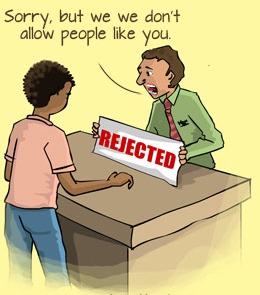 Let me start by saying, that I believe the policies in question, are being widely misused against any complainant that public bodies want to fob-off. This is so, because in the UK there is a cover-up culture among the public sector and arbitrary labelling is used to deflect complainants, they can simply claim that a complainant’s behaviour is unreasonable, or vexatious. And once labelled so, it’s on record and gives them carte blanche to ignore you or treat you a particular way. They also disseminate this labelling of you to other bodies.
Let me start by saying, that I believe the policies in question, are being widely misused against any complainant that public bodies want to fob-off. This is so, because in the UK there is a cover-up culture among the public sector and arbitrary labelling is used to deflect complainants, they can simply claim that a complainant’s behaviour is unreasonable, or vexatious. And once labelled so, it’s on record and gives them carte blanche to ignore you or treat you a particular way. They also disseminate this labelling of you to other bodies.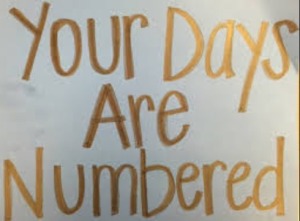
 I have noticed how autistics can mistakenly be perceived by others as “mature”, despite the fact that they are almost always chronologically older, than their actual emotional maturity and awareness and until they have been around longer than others, often not street-wise and are likely to struggle to understand things their neurotypical peers find instinctive. Maturity means experience in life, learning from those experiences, gaining wisdom from those experiences and presenting a somewhat “sensible” face to the world and more than might be expected for your age.
I have noticed how autistics can mistakenly be perceived by others as “mature”, despite the fact that they are almost always chronologically older, than their actual emotional maturity and awareness and until they have been around longer than others, often not street-wise and are likely to struggle to understand things their neurotypical peers find instinctive. Maturity means experience in life, learning from those experiences, gaining wisdom from those experiences and presenting a somewhat “sensible” face to the world and more than might be expected for your age. What is imagination? It’s the ability to think up scenarios, settings, possibilities and things. Autistics are completely able to do this – yet the myth persists that autism means impaired or absent imagination. There has been a grave misunderstanding of the fact that it’s
What is imagination? It’s the ability to think up scenarios, settings, possibilities and things. Autistics are completely able to do this – yet the myth persists that autism means impaired or absent imagination. There has been a grave misunderstanding of the fact that it’s  There are times when I have a meltdown in my head. It’s hard to describe the feeling, I kind of internalise the meltdown and run it like a film in my head. Of what I truly need to do – but can’t. A film, running with me screaming my head off, ranting out all the words I want to yell at the situation or person. Imagining it like an alternate universe scenario.
There are times when I have a meltdown in my head. It’s hard to describe the feeling, I kind of internalise the meltdown and run it like a film in my head. Of what I truly need to do – but can’t. A film, running with me screaming my head off, ranting out all the words I want to yell at the situation or person. Imagining it like an alternate universe scenario.
 Sometimes you get a sense of something being up with peoples’ reactions to you, without knowing what or why. As a special needs parent you need to deal with a host of professionals along the way, going through assessment to diagnosis, getting your child’s educational needs met and potentially, ongoing health issues. For an autistic parent this can be a veritable minefield.
Sometimes you get a sense of something being up with peoples’ reactions to you, without knowing what or why. As a special needs parent you need to deal with a host of professionals along the way, going through assessment to diagnosis, getting your child’s educational needs met and potentially, ongoing health issues. For an autistic parent this can be a veritable minefield.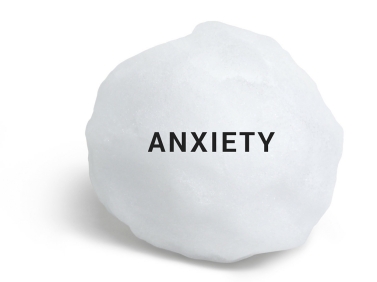
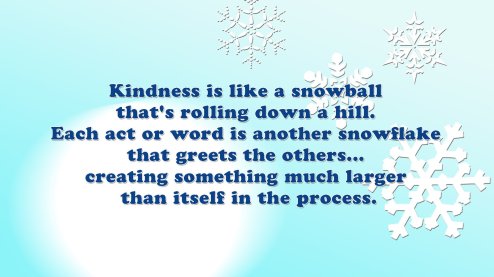

 This is a very hard post to write, for various reasons. There are some in the autism community who feel very strongly about autism parents accepting all autistic behaviours and that parents should not speak negatively about them. Being autistic myself, I see both sides and I don’t like seeing autism ‘martyrs’ who humiliate their children online with real names, videos and photographs of their child’s difficult moments and speak constantly of the negatives as if there are no positives, purely to obtain attention/sympathy. But we have to face facts, being an autism parent is extremely hard, especially if your child has an ASD sub-type such as pathological demand avoidance (PDA) and/or if there is a complex presentation such as additional conditions e.g. ADHD or mental health difficulties.
This is a very hard post to write, for various reasons. There are some in the autism community who feel very strongly about autism parents accepting all autistic behaviours and that parents should not speak negatively about them. Being autistic myself, I see both sides and I don’t like seeing autism ‘martyrs’ who humiliate their children online with real names, videos and photographs of their child’s difficult moments and speak constantly of the negatives as if there are no positives, purely to obtain attention/sympathy. But we have to face facts, being an autism parent is extremely hard, especially if your child has an ASD sub-type such as pathological demand avoidance (PDA) and/or if there is a complex presentation such as additional conditions e.g. ADHD or mental health difficulties. “But we don’t see it in school” (Mum must be lying), “S/he’s fine here, no trouble.” (Mum is attention-seeking, maybe she has FII), “Really? I can’t imagine him/her behaving like that, s/he’s never done that here.” (Mum must have poor parenting skills/there are issues at home).
“But we don’t see it in school” (Mum must be lying), “S/he’s fine here, no trouble.” (Mum is attention-seeking, maybe she has FII), “Really? I can’t imagine him/her behaving like that, s/he’s never done that here.” (Mum must have poor parenting skills/there are issues at home). Autistic children – like children with other disabilities – are vulnerable. Because they are vulnerable they need additional support. It is part of their parent’s role to seek that support and help, as any decent parent naturally would. So why, are there so many professionals that actively obstruct this process and refuse the help and support those vulnerable children need?
Autistic children – like children with other disabilities – are vulnerable. Because they are vulnerable they need additional support. It is part of their parent’s role to seek that support and help, as any decent parent naturally would. So why, are there so many professionals that actively obstruct this process and refuse the help and support those vulnerable children need?
 It had to be done. Due to the popularity of the ‘
It had to be done. Due to the popularity of the ‘
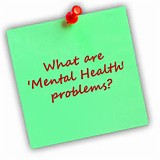

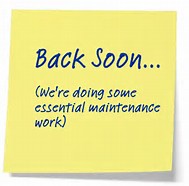


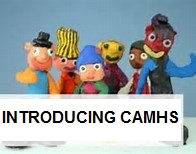
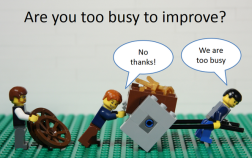




 This post is partially written with tongue-firmly-in-cheek, because what comes next, despite the emotions and wrath conjured up in the blogger in question, I have found a combination of bemusing, ironic and humorous. There are times you simply have to laugh things off. Most often that is easy do, when you know that what is claimed by the other person has no basis in truth, it makes it simply not matter. Especially when it’s forgettable. And even when very wrong, I still respect someone’s right to their own opinion.
This post is partially written with tongue-firmly-in-cheek, because what comes next, despite the emotions and wrath conjured up in the blogger in question, I have found a combination of bemusing, ironic and humorous. There are times you simply have to laugh things off. Most often that is easy do, when you know that what is claimed by the other person has no basis in truth, it makes it simply not matter. Especially when it’s forgettable. And even when very wrong, I still respect someone’s right to their own opinion. This post is prompted by reading another blogger’s
This post is prompted by reading another blogger’s  (NAS page updated to remove comment since screenshot taken! Still available to view here however:
(NAS page updated to remove comment since screenshot taken! Still available to view here however: 

 Most people are expert at something – even if it’s something negative! Autism diagnosticians such as psychologists and psychiatrists, are, purportedly, the experts in assessing and diagnosing children for autism.
Most people are expert at something – even if it’s something negative! Autism diagnosticians such as psychologists and psychiatrists, are, purportedly, the experts in assessing and diagnosing children for autism.

 Your browser keeps crashing ‘cos you’ve got four hundred and fifty-five tabs on the go…
Your browser keeps crashing ‘cos you’ve got four hundred and fifty-five tabs on the go… Ego is a funny thing. It makes people proud and vain at one end of the scale or insecure and paranoid at the other. It isn’t therefore, necessarily a good thing to possess. But most people have one, unless they have learned to master it and let such burdens go. The male ego is something that is famously guarded, it’s something females are not supposed to dent. A man must not feel his “masculinity” is under question. Machismo, manliness, masculinity…no matter how well hidden it is, in a metro man, a nerd or a hippy, they all have male pride…an ego.
Ego is a funny thing. It makes people proud and vain at one end of the scale or insecure and paranoid at the other. It isn’t therefore, necessarily a good thing to possess. But most people have one, unless they have learned to master it and let such burdens go. The male ego is something that is famously guarded, it’s something females are not supposed to dent. A man must not feel his “masculinity” is under question. Machismo, manliness, masculinity…no matter how well hidden it is, in a metro man, a nerd or a hippy, they all have male pride…an ego.


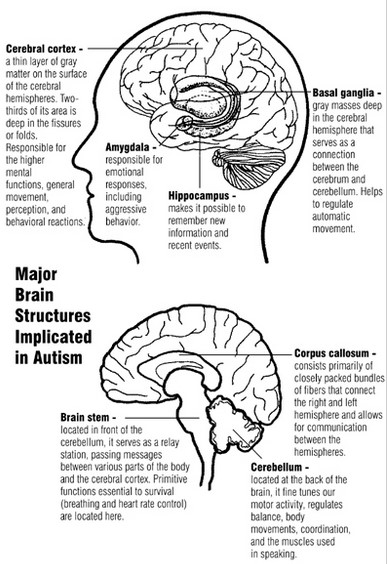 I’ve read this so many times now. And it gets more tired every time. “Autism is not a disability, it’s just a difference.” It’s oft-quoted by the more strident and vocal autistic campaigners, who are affronted by the mere hint of autism being seen as disabling, or an encumbrance for the autistic or their parent. They talk of the gifts of autism, of how it’s only a different way of thinking and cite all the famous people either with it, or who are retrospectively suggested to have been autistic.
I’ve read this so many times now. And it gets more tired every time. “Autism is not a disability, it’s just a difference.” It’s oft-quoted by the more strident and vocal autistic campaigners, who are affronted by the mere hint of autism being seen as disabling, or an encumbrance for the autistic or their parent. They talk of the gifts of autism, of how it’s only a different way of thinking and cite all the famous people either with it, or who are retrospectively suggested to have been autistic. The internet is home to a vast array of forums, forums that cater for every type of group possible. There are support groups relating to particular conditions, whether that be for the individuals with the condition, or parents of children with it. Autism is no exception. Sometimes, autistics also have other conditions and will frequent the associated forums. (We do get about online!)
The internet is home to a vast array of forums, forums that cater for every type of group possible. There are support groups relating to particular conditions, whether that be for the individuals with the condition, or parents of children with it. Autism is no exception. Sometimes, autistics also have other conditions and will frequent the associated forums. (We do get about online!)
 Here we go, off to CAMHS again
Here we go, off to CAMHS again



 Sometimes, you can feel no choice but to speak out about wrongs you encounter. Sometimes, something happens which triggers you to do so. Today was one of those days. This is the tale of autism charitable organisations at both national and local levels.
Sometimes, you can feel no choice but to speak out about wrongs you encounter. Sometimes, something happens which triggers you to do so. Today was one of those days. This is the tale of autism charitable organisations at both national and local levels.




 I used to think it was just me, a quirk I had. This weird thing, where if you have been somewhere away from a familiar environment such as home, for any length of time, upon your return it’s like the place you visited is overlaid like a ghost shadow, an imprint over the real-world view of the present. Having been on long motorway journeys, I can close my eyes and still see the motorway from the same eye-view as I had whilst sitting in the car and the sensation of driving endlessly along was still there, along with this ghost shadow of the image, even when my eyes are open.
I used to think it was just me, a quirk I had. This weird thing, where if you have been somewhere away from a familiar environment such as home, for any length of time, upon your return it’s like the place you visited is overlaid like a ghost shadow, an imprint over the real-world view of the present. Having been on long motorway journeys, I can close my eyes and still see the motorway from the same eye-view as I had whilst sitting in the car and the sensation of driving endlessly along was still there, along with this ghost shadow of the image, even when my eyes are open. As any parent of an autistic child will tell you, people can be really judgmental. Autistic children can have meltdowns wherever you are, in shops, parks, family outings… you name it. When the child is very young, you may get an understanding smile from another parent, who views it as an ordinary toddler tantrum, but as the autistic child gets bigger, the looks become more and more disapproving.
As any parent of an autistic child will tell you, people can be really judgmental. Autistic children can have meltdowns wherever you are, in shops, parks, family outings… you name it. When the child is very young, you may get an understanding smile from another parent, who views it as an ordinary toddler tantrum, but as the autistic child gets bigger, the looks become more and more disapproving.
 What can be done, about the utterly shocking situation of decent
What can be done, about the utterly shocking situation of decent 